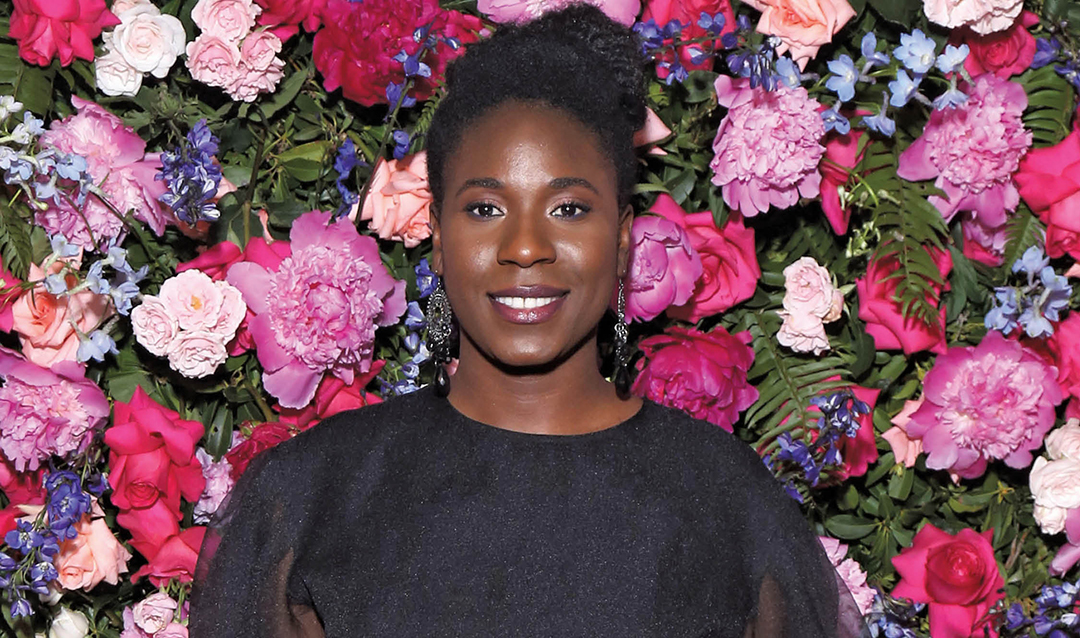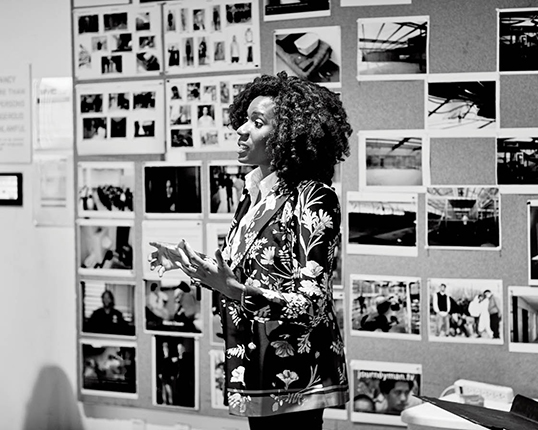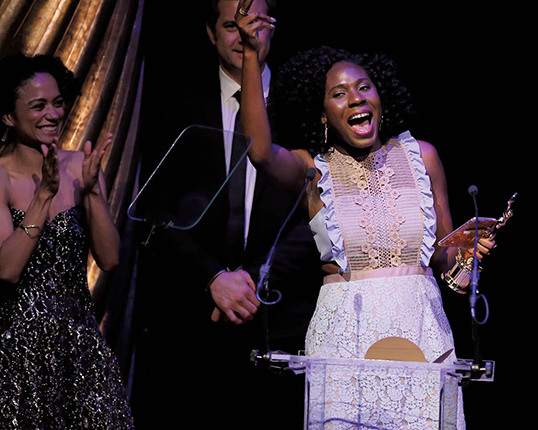A native of Ghana, Ayite moved to Silver Spring, Maryland, to live with her mom during high school. She loved biology but also wanted to study the arts and chose Lehigh University where she could do both, majoring in theater and behavioral neuroscience.
In her theater studies, Ayite gravitated to Lehigh’s scene shop, where she helped design and build sets for such productions as The Piano Lesson by August Wilson, No Exit, by Jean-Paul Sartre and The Fantasticks, by Tom Jones and Harvey Schmidt. Her work-study job included setting up for shows at Zoellner Arts Center, working in the costume shop and building scenery. In Kashi Johnson’s acting class, she performed a monologue from For Colored Girls Who Have Considered Suicide/When the Rainbow is Enuf by Ntozake Shange.
“That was the beauty of the theatre program: I had my hands in everything,” Ayite says. “There were people who inspired me and who saw something in me that I hadn’t really seen for myself.”
By junior year, she knew she wanted to pursue a career in the arts, though she says what she learned in neuroscience now helps her in working with actors and designing their costumes.
“When you’re a neuroscience major, you’re studying behaviors, you’re studying psychology, getting a window into understanding what makes us as human beings react certain ways, how potentially past traumas or childhood developments affect the way we are as adults,” she says. “So I pull that into my world as a costume designer especially because I’m dealing with actors in moments of extreme vulnerability.
“It also helps me in taking a character that’s on a page and translating that into a design that a human being is going to wear.”
After graduating, she spent a year in an apprenticeship at Lehigh, managing the scene shop, and then apprenticed at the Santa Fe Opera in New Mexico before getting her master of fine arts degree in design at the Yale School of Drama.
In her work, Ayite seeks to dispel the notion that the Black experience is monolithic. She has felt the sting of racism within the theater world but believes dwelling on such episodes would be counterproductive.
“If I’m holding onto that—what do they say—it’s like me drinking poison and expecting the other person to suffer. I learn from them and I push forward,” she says. “I’m hopeful, and I choose to work with people who are interested in creating change.”
To that end, Ayite is active in Design Action, a project started last summer by veteran designers who want to find ways to help up-and-coming designers of color gain opportunities while reducing the prejudice they face.







